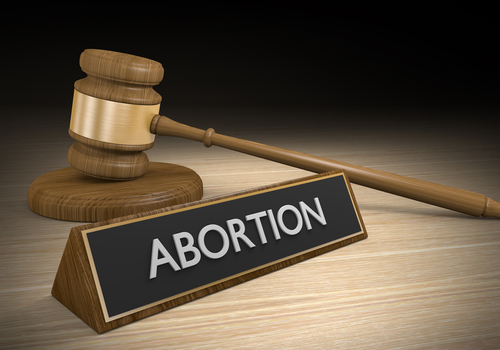Abortion providers ask Supreme Court to block Texas heartbeat law from taking effect

Image from Shutterstock.
Abortion providers asked the U.S. Supreme Court on Monday to intervene after a federal appeals court over the weekend had stymied their attempts to stop a far-reaching Texas abortion law from going into effect.
The Center for Reproductive Rights, Planned Parenthood, the Lawyering Project, the American Civil Liberties Union and other groups said they had asked the Supreme Court to intervene before the law, known as the Texas Heartbeat Act, goes into effect on Sept. 1.
Nancy Northup, president and CEO of the Center for Reproductive Rights, said the groups had filed the emergency application to block a law that will effectively ban abortion in the state and forces clinics to turn patients away.
“Patients will have to travel out of state—in the middle of a pandemic—to receive constitutionally guaranteed health care. And many will not have the means to do so. It’s cruel, unconscionable and unlawful,” Northup said in prepared remarks.
In July, abortion providers filed a lawsuit to block the law. It could prevent abortions six weeks into pregnancy and permits members of the public, including those outside Texas, to enforce the ban by filing civil lawsuits against abortion providers, according to the groups.
The health care providers had hoped to make their case against the law at a hearing scheduled for Monday in Austin, Texas, federal court. They were expected to ask the court to step in to stop the law from taking effect Wednesday.
The 5th U.S. Circuit Court of Appeals at New Orleans, however, abruptly canceled that hearing Friday night, the Texas Tribune reported. Then on Sunday, the court denied emergency motions filed by providers, including the Planned Parenthood Center for Choice and the Whole Woman’s Health Alliance.
Emily Cook, general counsel for Texas Right to Life, an anti-abortion group, was pleased by the court’s decisions and says she expects the law to go into effect.
“Texans spoke to their legislature, and they care about protecting unborn children and their mothers and protecting Texas families,” Cook told the ABA Journal in an interview.
In May, Republican Texas Gov. Greg Abbott signed the bill into law and said that it would ensure “the life of every unborn child that has a heartbeat will be saved from the ravages of abortion.”
Anti-abortion groups and abortion protesters hoped that the law would withstand legal challenges because government officials do not enforce it. Instead, the law leaves enforcement to ordinary citizens who can file civil claims against the providers, exposing the providers to at least $10,000 in damages per abortion, as well as legal fees.
The abortion providers filed a class action against the bill July 13, called SB 8, arguing that the legislation “flagrantly violates the constitutional rights of Texans seeking abortion and upends the rule of law in service of an anti-abortion agenda.”
Because about 85% to 90% of women are at least six weeks into pregnancy when they seek an abortion, the law effectively bans it, the groups said in a press release announcing the emergency motion filed at the Supreme Court.
The abortion providers argued in the lawsuit that the state was trying to circumvent judicial review by deputizing “random strangers” to bring civil claims against providers and anyone who aids or abets them.
“The transparent purpose of SB 8’s enforcement scheme was to make it so that abortion providers and people who assist abortions could not sue government officials for an injunction to block the law before it takes effect,” according to the complaint.
See also:
ABAJournal.com: “Citizen plaintiffs can sue to enforce Texas fetal heartbeat bill; could Uber drivers be liable?”
ABAJournal.com: “Federal appeals court upholds ban on common second-trimester abortion method”
Write a letter to the editor, share a story tip or update, or report an error.


